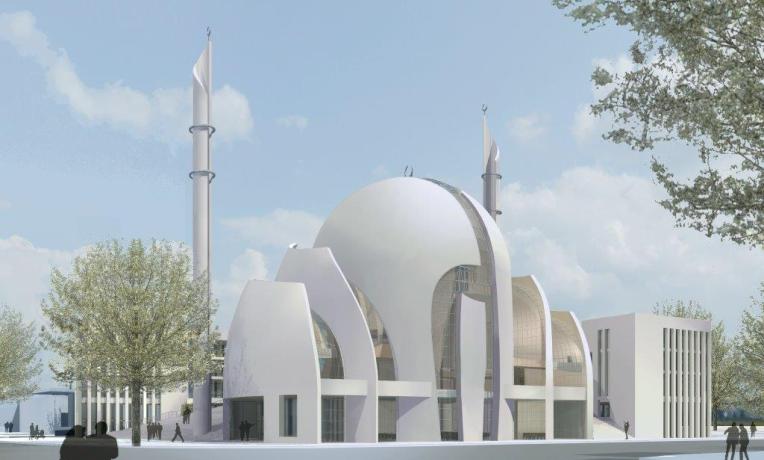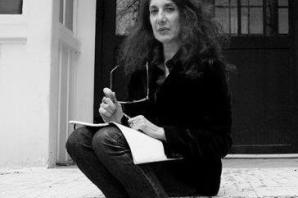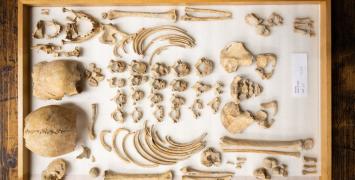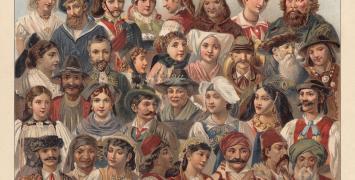Religious integration: how to look beyond stereotyped images
Headscarves, mosques and halal shops — many EU citizens are Muslims, but visible signs of their faith are often viewed with distrust. What some Europeans see as a right to express their identity, others regard as a threat to societal core values. Insights from ERC-funded research into emblematic controversies may help to find a way forward.

Controversies surrounding Islam aren’t specific to the city or country where they arise. In the post-migration phase, these public controversies reach across Europe and have gained a transnational dynamic. This is the premise of the research project EuroPublicIslam conducted by Prof. Nilüfer Göle, professor of sociology at EHESS, the School for Advanced Studies in the Social Sciences in Paris.
“With my research, I wanted to look beyond the headlines to see the real people involved in these controversies,” she explains. “In the media debate, we don’t usually hear the voices of those who are involved.” To do so, she ran workshops exploring prominent disputes between Muslims and their neighbours in 21 European cities.
In 2015, Prof. Göle published: Musulmans au Quotidien. Une enquête européenne sur les controverses autour de l’islam (La Découverte, Paris, 2015), a book based on this research. It has been translated to German, Polish, Turkish and was recently released in English. In May of 2017, Prof. Göle received the "Ambassador of the New Europe" award for her book, a prize awarded by the Center for European Solidarity (Solidarnosc) and the Jan Nowak-Jezioranski College in Eastern Europe, Gdansk, Poland.
Courting controversy
The public sphere is a matter of people, of citizens more than organised politics, Prof. Göle explains. The controversies around Islam appear not at an abstract level, but in local, physical places such as cities, where citizens interact and assert their differences.
This observation raised tricky questions for research, she adds. “I wondered if there actually was such a thing as a European public sphere around Islam, and if so, how I could conduct research there.”
In response to this question, she developed an “experimental public sphere” – a methodology recreating miniature versions of the public sphere where she and a team of students could study the dispute. This approach took the form of four-hour encounters where citizens discussed a particular bone of contention, such as a controversial art installation in Brussels or hotly debated plans for a new mosque in Cologne. Residents from diverse religious and cultural backgrounds were brought together in these sessions and explored possibilities for living together addressing also the conflictual issues.
[Insert here the image of the Cologne mosque, Caption in smaller:] The Cologne Mosque, for debating new architectural forms in European context
Integration beyond invisibility
Europe’s Muslims are not a homogenous group – no more so than the other parties involved in the debate. However, says Prof. Göle, they have one thing in common, in that they are seeking to gain acceptance as being both Muslim and European.
Other Europeans often feel threatened and invaded as core values of their societies are called into question, she notes. ‘Concessions’, however minor, may be viewed as the thin end of the wedge. When discussions are however allowed to go beyond the exchange of standard phrases, a wide range of perspectives can emerge on both sides of the debate.
United in diversity?
“The question,” says Göle, “is how to go beyond the opposition at the level of everyday life and public life. There were many groups where the attempt failed.”
If we want to move forward together, she argues, we need to look beyond the stereotyped images conveyed by many media, reclaiming what she calls the power of interpretation in a bid to learn more about ordinary citizens, their hopes and their concerns. We need to express our diverse heritage in innovative forms and aesthetics, as exemplified by the integration of church-building expertise in the design of Cologne’s new mosque.
Change is already under way, says Prof. Göle. “Muslim citizens are carving out a space for themselves”, she notes.
And, she adds, they need to reach out. Performative citizenship can help to break down barriers and increase tolerance, Prof. Göle explains, citing the example of a peace circle formed by Muslims around a synagogue in Oslo following extremist attacks in other European cities.
“A new dynamic has begun to emerge in European public culture, an exploration of common norms, shared experiences of living together,” Prof. Göle notes. She describes this dialogue as crucial, even more so at times when terrorism targets cohexistence and exposes the vulnerability of public life in Europe.
EuroPublicIslam, which ended in December 2013, was backed by a grant from the European Research Council. “This grant has taken my work to an entirely new level,” Prof. Göle reports, adding that the project also provided opportunities and inspiration for the budding researchers who composed her team.
“The project helped me to explore many ways of becoming European and being part of society, and it actually made me more European myself,” she concludes.
Nilüfer Göle is Professor of Sociology at the School for Advanced Studies in the Social Sciences (EHESS) in Paris (France). She works on Islamic visibility, secularism and intercultural controversies in European public spheres. Her sociological approach aims to open up a new reading of modernity from a non-western perspective and a broader critique of Eurocentrism in the definitions of secular modernity. Her books have been published in many languages.
Watch (in French): EuroPublicIslam: Itinéraires d’une recherche européenne




